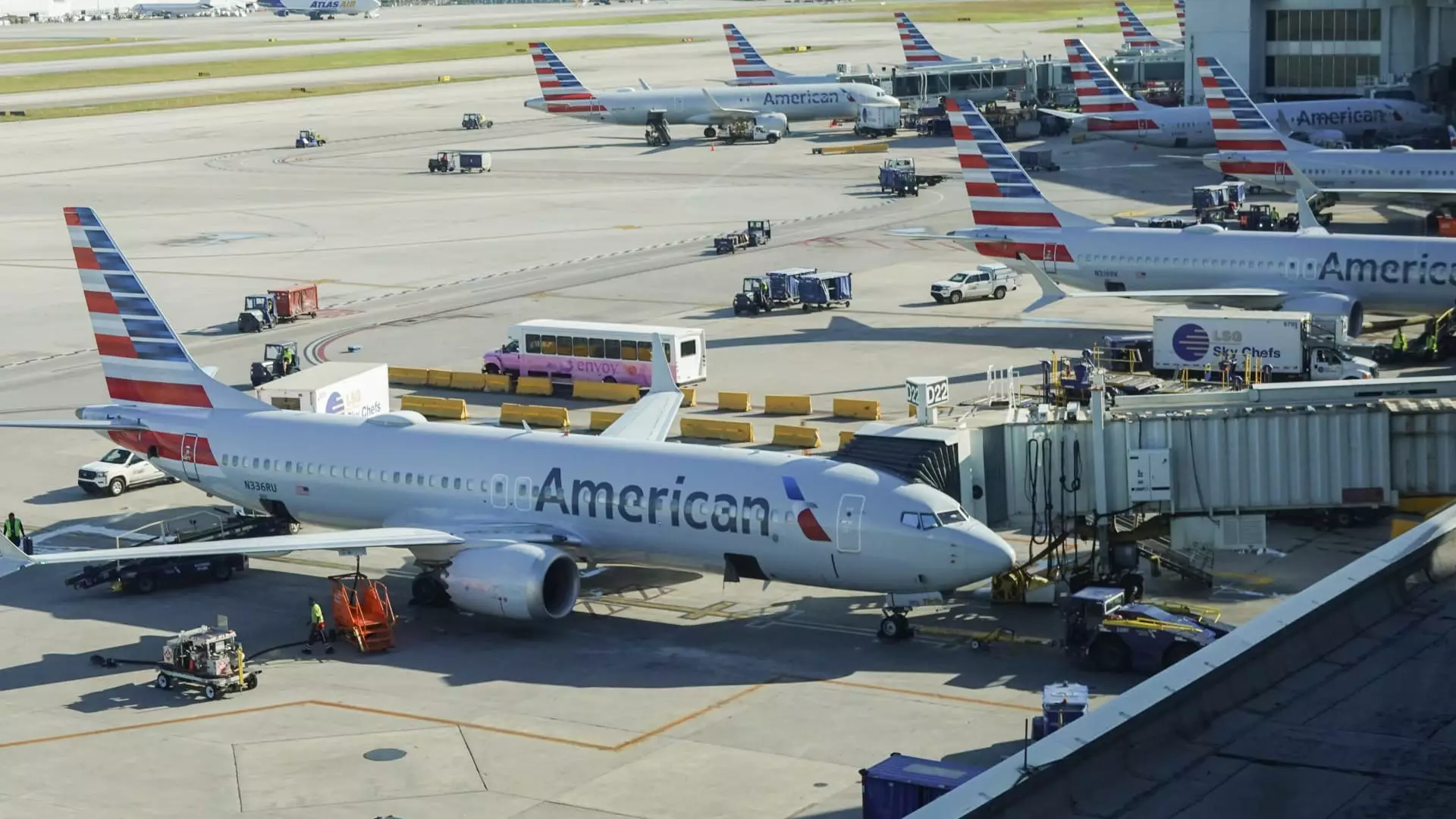On a busy Tuesday morning, just as travelers were gearing up for an anticipated holiday rush, American Airlines faced a significant disruption due to a technical glitch. The grounding of all U.S. flights sent ripples through an air travel system already bracing for high demand during the festive season. By 7:55 a.m. ET, the pause in operations was quickly lifted, allowing flights to resume. This nearly hour-long grounding acted as a stark reminder of how fragile the complex web of airline operations can be, particularly in times of heightened passenger volume.
According to an American Airlines spokesperson, the disruption arose from a vendor-related issue concerning a system vital for assessing critical flight data, including the weight and balance of aircraft—a prerequisite for any flight to depart. This incident underscores the dependency airlines have on diverse technology platforms, some of which may not be directly controlled by the airlines themselves. Such dependencies can lead to vulnerabilities that could impact entire fleets’ schedules.
Coordinated Responses to Disruptions
The Federal Aviation Administration (FAA) confirmed that the grounding was requested by American Airlines. This strategic move, a common practice within the aviation industry, aims to prevent congestion at destination airports when unexpected cancellations or delays occur. It’s a method that, although disruptive, prioritizes operational safety and efficiency. Often, ground stops are leveraged not only for technical issues but also for severe weather and other emergencies, highlighting the layered complexities of modern air travel management.
This incident also brings to light the broader context of airline systems and their past failures. Following high-profile operational meltdowns, such as Southwest Airlines’ significant disruptions during the 2022 holiday season and Delta’s difficulties earlier this summer caused by a cybersecurity incident, the focus on technological resilience has intensified. These events have prompted airlines to reassess their reliance on various platforms and prioritize investments in robust, integrated systems to prevent future failures and improve recovery protocols.
A Commitment to Improvement
Despite the morning’s challenges, American Airlines reported that there were no flight cancellations directly linked to the technical malfunction. The company expressed sincere apologies to customers affected by the brief grounding, emphasizing a commitment to enhancing customer experience. As airlines prepare for the upcoming holiday season, maintaining seamless operational capability will be paramount, not only to ensure passenger satisfaction but also to bolster the industry’s reputation in the aftermath of recent, disruptive incidents.
Looking Ahead: The Need for Change
The airline industry stands at a crossroads, where technology and travel intersect. The necessity for reliable systems that support safe and efficient operations has never been more pressing. American Airlines and its contemporaries must work diligently to identify potential vulnerabilities in their operations and cultivate resilience to withstand any future technical challenges. As the holiday season approaches, the priority will be ensuring that customers can travel stress-free, particularly during a time when families are eager to reunite.

